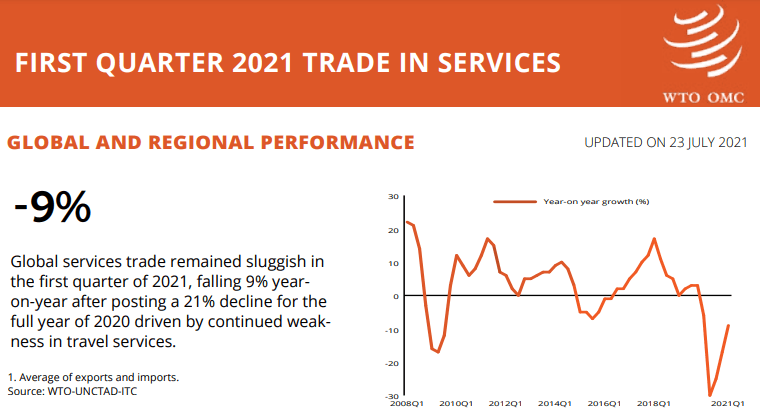What is international trade in services ?: ALADI’s response

In order to define the concept of «international trade in services», the differences that this discipline presents with trade in goods must be analyzed, as well as the different modalities that exist for its supply.
With respect to their differentiation from goods, services have the following particularities, as explained by ALADI:
- They are intangible and not storable.
- Normally no tariffs are applied.
- Internal regulations are very important.
- They can have an impact on many different producers and consumers.
International trade in services
In addition, the signatory states of ALADI are: Argentina, Bolivia, Brazil, Chile, Colombia, Cuba, Ecuador, Mexico, Paraguay, Peru, Uruguay and Venezuela. A central objective of ALADI is to create and consolidate a free trade zone between the signatory states, which is being achieved through a gradual process of integration.

So international trade in services not only encompasses the cross-border exchange of services, as in the case of goods, but also includes other forms of transaction, such as consumption abroad (eg tourism), commercial presence in a market (eg establishment of a subsidiary) or temporary presence of service providers (eg business travelers).
Likewise, the scope of the relevant disciplines is not limited to measures that affect services, but extends to those that affect service providers (eg merchants and distributors).
Data on Trade in Services by Modes of Supply (TISMOS) is a set of experimental data produced by the WTO and financed by the Directorate-General for Trade of the European Commission.
Digital commerce
In 2017, the Interagency Task Force on International Trade Statistics created a group of experts, whose members come from international organizations, national statistical agencies and central banks, to develop a Manual on the measurement of digital trade.
![]()

